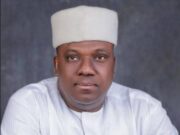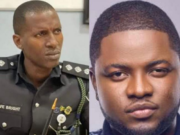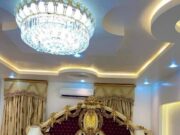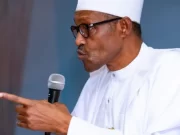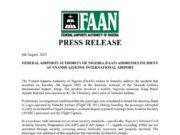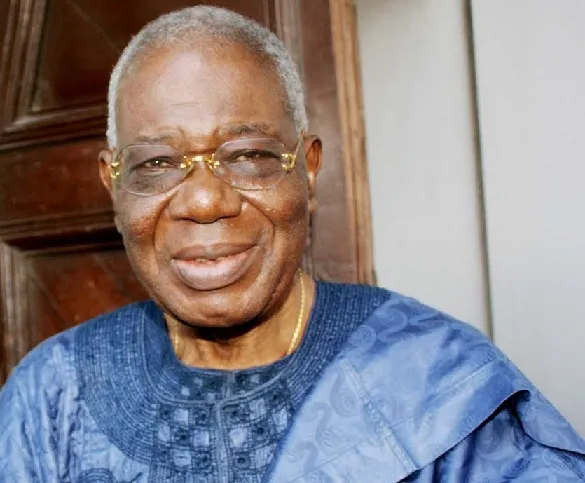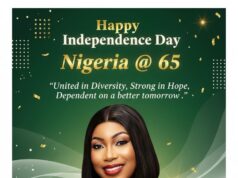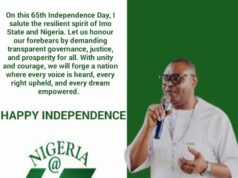It is an almost musty realization, Nigeria’s chivalrous and respected leader, Chief Ernest Adegunle Oladeinde Shonekan, died on 11th January 2022, placing the country in a gale of melancholy. An accomplished businessman and highly valued player in the global business place, Chief Shonekan who was born in Nigeria’s commercial capital, Lagos, capitulated to the cold hands of death at the age of 85 years. He was a man of the finest virtues of human kindness and decorum and was reputed for his outstanding industry and hard work. Chief Shonekan was a man of humane temperament and lived an exemplary life of moral excellence, discipline, and great loyalty to the cause building a solid Nigeria.
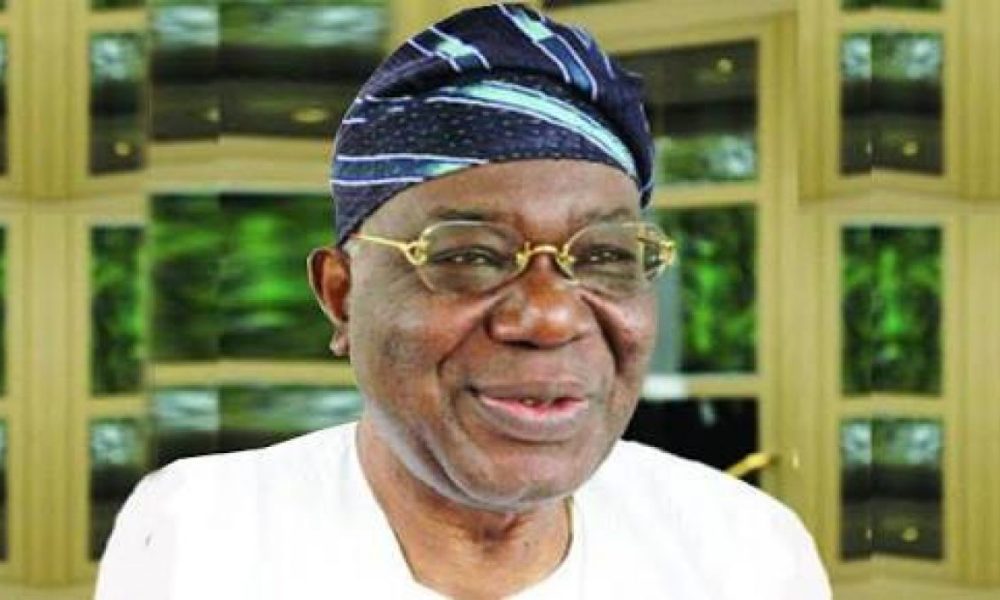
PERSONAL PHILOSOPHY
It is a commonly held dictum that the two worlds of politics and business should run in parallel lines and might not be allowed to collide or coalesce. Whereas several people in politics came in out of the personal drive for such ascendency, in a good number of cases, their exceptional acumen in managing men and resources is seen as a great asset for which they were coaxed into the murky world in which politicians operate. Hence, persons such as the 29th American President, Warren Harding who was a leading business mogul of his time was co-opted into salvaging his country immediately after the First World War and served from 1921 to 1923. However, other great entrepreneurs such as Michael Bloomberg who still dominates Wall Street in New York, as an investment banker, is quoted to have said that he entered politics as a calling into public service, for the public good and to advance philanthropy. This is the same for Italian billionaire and football magnate, Silvio Berlusconi, who on several occasions ruled his country as Prime Minister. For others like the 45th American President, Donald Trump, his coming into politics was a lifelong ambition and intended “to make America great again”, which is some form of self-acclaimed messianic mission.
For Shonekan, the entry into leadership in the public sector was something far from personal ambition or strong aspiration to acquire power. On the contrary, his enduring motivation in life had always appeared to be to achieve great success in his chosen legal profession within the corporate space. Added to that, his intrinsic ambition as he grew higher in the private sector, was to create wealth and through that, spread its distributive benefits to society. A corollary to that was what he mentioned at a time as the motivation to build men and women who came his way to achieve similar goals as him with the end result of a greater Nigeria. So to Shonekan, his trident pursuit of accomplishment in commerce and industry was founded on a very optimistic outlook that Nigeria will one day, be not just globally competitive but a dominant player within the leading economies of the world.
THE LAGOS-EGBA BOY
Shonekan was a typical “Omo-Eko” – a Lagos boy per excellence. His parents had come from the neighboring town of Abeokuta of the Egba stock, a sub-group of the Yoruba ethnic group. The Egbas are a group, which the likes of Former President, Olusegun Obasanjo, Nobel Peace Prize Winner, Professor Wole Soyinka, once billionaire politician M.K.O. Abiola and many of the greatest Nigerians in all spheres also came from. But unlike many of his kinsmen who were home-bred around the rocky hills of Abeokuta, Shonekan was born and bred in Lagos where his father served as a civil servant and raised his family.
He received his early education at the CMS Grammar School which is Nigeria’s oldest post-primary institution established by the Anglican Church on 6th June 1859. He thereafter proceeded to Igbobi College which itself was established by the unique combined effort of the Methodist and Anglican Churches. These are two notable academic institutions that have produced virtually everyone who became one of the citizens of reckoning, especially from the old Western Region of Nigeria. Shonekan, therefore, started life with who became leaders in various fields in Nigeria. Shortly after, he proceeded to the University of London, to pursue a degree in Law and graduated in 1962.
In the course of his professional ascension, he also attended the prestigious Harvard Business School, Boston, USA, to sharpen his entrepreneurial skills. It needs mention that from when it was established in 1908, the Harvard Business School, which has a huge endowment of $3.5 billion dollars, continues to maintain its standing as the world’s leading Business and Public Administration institution. One notable thing that stands to Shonekan’s credit was the fact, that wherever he received learning, he kept a record of exceptional brilliance and was always adjudged as a most affable personality.
RIDING THE CORPORATE CREST
Having started life with a very good level of education, he joined the United Africa Company (UAC), which was a surviving relic of chartered houses, which had royal sanction to carry out business in colonial Africa during the 19th and 20th centuries. In historical synopsis, in 1879, Sir George Goldie Taubman (1946-1925) merged the four main chartered British Companies operating in Nigeria at the time, to form the United Africa Company Limited, the predecessor of what is today UAC Plc. Although the company today has a more continental outreach, by the time Shonekan joined, it had become solidly entrenched in Nigeria as the biggest business entity with the name, UAC Nigeria.
Shonekan joined UAC as a Legal Officer but rose steadily in the organization, whose activities cover almost every sector of the national economy. This includes property development, logistics, and warehousing, manufacturing, agriculture, foodstuff, beverages, etc. Through dint of hard work and diligence, he rose under the watchful eyes of his British superiors to become one of the highest-rated Nigerians in the organized private sector of the country. He was barely 40 years old when given the honor of seating on the board of this big monopoly and became greatly exposed to the crème de la crème of business in Nigeria and the entire African continent. Ultimately, he rose to become the first African to be appointed as Chairman and Chief Executive Officer of the number one company quoted in the Nigerian Stock Exchange. At the national level, his position as the number one businessman in the country as it were, equally brought him into close interaction with the government on matters relating to the growth of the private sector and the Nigerian economy in general.
It is worthy of note, that with the decision to adopt a policy of Economic Diplomacy by General Ibrahim Babangida’s government as the preferred focus of Nigerian Foreign Policy in 1987, Chief Shonekan was one of those relied upon by the government to mobilize the Nigerian Private Sector. This was to participate in various trade missions and promotional activities for the nation’s economy. He, therefore, led the private sector component to travel around the world, at personal cost with high government officials to speak on the Nigerian economy at various fora. Some of the trade missions in which he was actively involved included those led to Jamaica by the then Vice-President, Admiral Augustus Aikhomu, to Ethiopia, Namibia, and Zimbabwe by the Foreign Minister, General Ike Nwachukwu, and to Germany and United Kingdom by President Ibrahim Babangida.
CONSCRIPTION INTO POLITICS
Like many African countries at the time, Nigeria’s military elite who had become debauched with their hold on political power vacillated repeatedly on the transition of power. General Babangida who had held unto power since overthrowing the government of General Muhammadu Buhari in 1985 introduced a detailed program for the country’s return to democracy. Under what was referred to as the “Third Republic”, one of such efforts at returning the country to democratic rule was short-lived just from 1992 to 1993. The military authorities in Nigeria undertook a number of steps including forming two centrist political parties; the National Republican Convention (NRC) and the Social Democratic Party (SDP).
In the subsequent election that was conducted in June 1993, the center-left party, SDP’s candidate and business tycoon, M.K.O. Abiola (1937-1998) who won the election was precluded from claiming his victory, in a rather precipitate manner. Babangida, who had earlier proclaimed himself a military president, had vowed to remove his hold on power, canceled the election, which all parties including those who contested with Abiola adjudged as free and fair. In the ensuing political crises, Babangida in a rather pre-emptive manner resigned from office and established an Interim National Government (ING).
Shonekan who had lived a self-effacing life was called upon as a neutral arbiter and a person of unassailable character to take over the reins of the highest office as Chairman of the ING and Head of State. Coincidentally, the roots of both Shonekan and Abiola were from the same community, Abeokuta. Though Shonekan was said to have initially rebuffed any suggestion at entering the public sphere, especially under such controversial circumstances, he had ultimately heeded the words of one time American President, John Kennedy regarding being able to provide one’s services to the nation when needed, hence, he succumbed to accept that office.
As the appellation depicted, his government was interim, lasting just a few months. Shonekan nonetheless started to repeal military decrees that seemed to impede respect for human rights and released large numbers of political prisoners. Although the military top brass who brought him in to stabilize the country were daily breathing down on his government, nonetheless, he embarked on setting many political detainees free. He also started the process towards a new election and bringing back democracy to Nigeria.
In addition, with a robust background as a businessman, the measure of his success weighed heavily on the economy. Amongst other things, he began to mount global support for debt cancellation at a time when most of the countries around the world, technically, saw Nigeria as a pariah nation. He also took very early steps to audit the accounts of the state-owned Nigerian National Petroleum Cooperation (NNPC). Since its establishment in 1967, the accounts of the NNPC were hardly vigorously looked into till then. Hence, Shonekan’s efforts to look into its books were viewed globally as a way of instilling good corporate governance to the largest oil company in Sub-Saharan Africa.
With regards to external relations, his assumption of office coincided with the time of the civil wars in Liberia and Sierra Leone. The first Liberian Civil War, for example, lasted from 1989 to 1997. It is against this backdrop that West African leaders led by Nigeria, formed what became known as the Economic Community of West African State Monitoring Group (ECOMOG), which was the first of its kind in the whole world and has become a model for regionally initiated peacekeeping. ECOMOG relied on the voluntary contribution of forces from member States, but big brother Nigeria led in both men and resources. Hence, it is no coincidence that nine out of the ten ECOMOG commanders were all Nigerians.
Others such as Ghana, Gambia, Mali, Burkina Faso, Guinea, Sierra Leone, Niger all contributed at different times.
With the coming in of Shonekan, three years after the take-off of ECOMOG, there was a yearning from the Nigerian public on reducing the country’s exposure to regional wars, particularly as it pertained to Liberia. Shonekan, therefore, began to take steps for troops’ withdrawal.
In sum, however, Shonekan’s vision on so many issues became short-lived as his government was overthrown by his own Minister of Defence, General Sani Abacha on 17th November 1993. This was barely three months after taking office.
LIFE AFTER POWER
A busy-bee of sorts, his undignified removal from office did not in any way drown Shonekan’s poise to remain active in what he knows best; building the Nigerian Economy. Therefore, under his watchful eyes, a group, the Nigerian Economic Summit Group (NESG), which is a high-level multi-state holders’ concert for the economic advancement of the country was formed. Its yearly summits, which just completed its 27th session in 2021, continue to provide the best ambiance for interrogating matters pertaining to the economy between top-level private sector operators and policymakers in the public sector.
In course of time, Shonekan also became the main anchor for the realization of what was known as “Vision 2010”, which was put together by General Abacha who had earlier seized power from him. Vision 2010 itself was robust, covering such areas as politics, economy, employment generation, gender, devotional development, fight against corruption, etc. Shonekan played a major role in the articulation of the vision and long-term processes towards its realization. Unfortunately, the lofty ideals of Vision 2010 just like many other good policies in Nigeria were allowed to waste in the years that followed. Rather, what was conceived by the first democratically elected leader in Nigeria, under the 4th Republic, Chief Olusegun Obasanjo came up in 2006, “Vision 2020”. Thereafter, the next successor, President Umaru Yar’Adua (1951-2010) introduced the “Seven-Point Agenda” in 2007 while Dr. Goodluck Jonathan who became President in 2010 added his own “Transformation Agenda”.
THE ECLIPSE
During his lifetime, Shonekan was highly honored and celebrated around the world. Realizing that charity begins at home, his own people back in Abeokuta conferred on him the title of “Abesse”, which is perhaps one of the biggest traditional honors of Egbaland.
In the closing years of his life, Shonekan remained a national figure of acclaim and was a bridge-builder who threw his towering personality towards the attainment of consensus on the multiplicity of issues that defy Nigeria’s nation-building. He supported all his successors and always stood in a place where he could assist in overcoming the challenges, which continuously arose in a deeply diverse and heterogeneous country. Shonekan never criticized any of his successors in the open but is known as one who always stated his beliefs firmly during smaller group interactions with his peers. So within the small and privileged forum of former Presidents of Nigeria, he was known as the middleman and pacifist per excellence.
He was a deeply religious person and stood as one of the bastions of the Lagos Diocese of the Church of Nigeria (Anglican Communion). He also supported in a major way all manner of missionary and philanthropic activities. In other ways, he was also a socialite with dignified gustatory senses and belonged to some of the elite social clubs in the bustling city of Lagos.
Shonekan will for long be remembered not only by his widow, Margaret, and family but all of Nigeria as one of the greatest citizens ever.
His final resting place is at Ebonyi Vault in Ikoyi Lagos.
Amb. Igali is an award-winning writer



